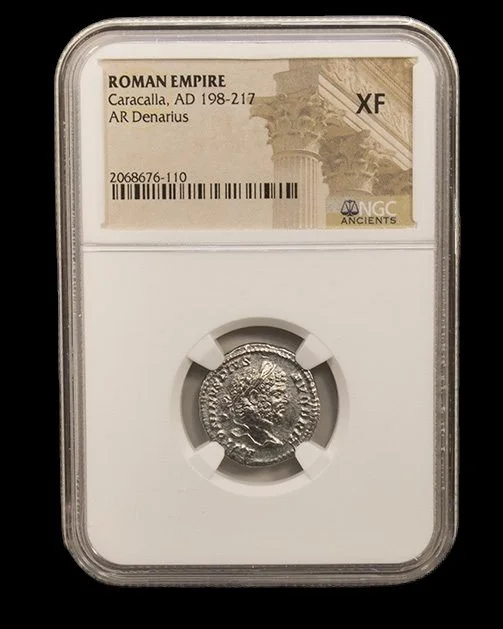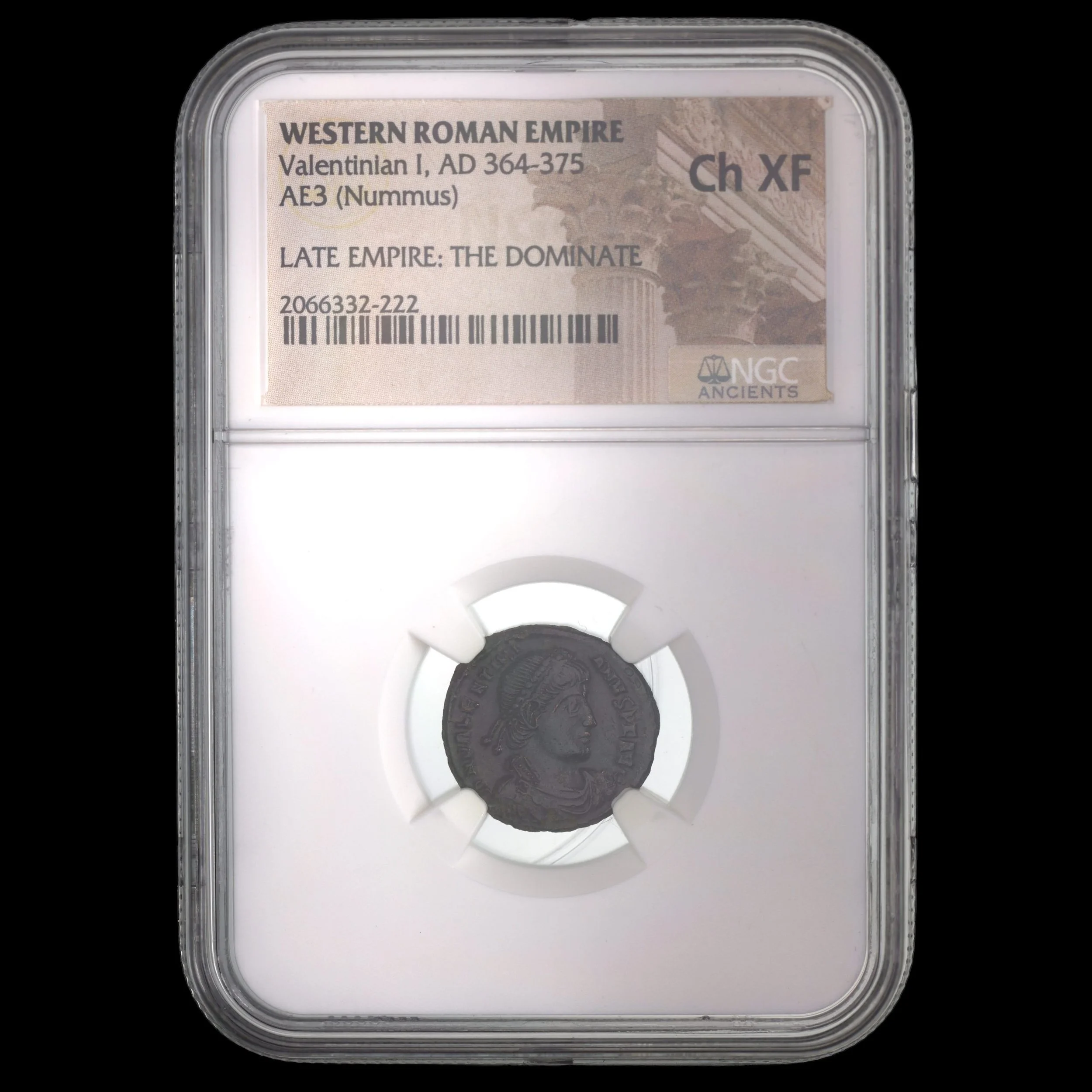 Image 1 of 8
Image 1 of 8

 Image 2 of 8
Image 2 of 8

 Image 3 of 8
Image 3 of 8

 Image 4 of 8
Image 4 of 8

 Image 5 of 8
Image 5 of 8

 Image 6 of 8
Image 6 of 8

 Image 7 of 8
Image 7 of 8

 Image 8 of 8
Image 8 of 8









Roman Silver Coin – Emperor Caracalla (about 1,800 years old) – NGC Certified – Featured in Gladiator II
Caracalla Silver Denarius (198-217 AD) — Roman Citizenship Revolution NGC Certified
NGC certified silver denarius from Emperor Caracalla — the brutal reformer who granted Roman citizenship to ALL free men in the empire via his 212 AD Edict, forever changing Rome's relationship with its provinces.
Coin Design
• Obverse: Caracalla portrait right — laurel wreath or fierce expression with turned-down mouth
• Reverse: Mars, Victory, military achievements, or Roman virtues + Latin inscriptions
Technical Specifications
• Material: Pure ancient Roman silver
• Denomination: Denarius (prestige silver currency)
• Certification: NGC authenticated
• Reign: 198-217 AD (co-emperor → sole ruler after murdering brother Geta)
Historic Game-Changer
• Constitutio Antoniniana (212 AD) — citizenship for nearly all free empire inhabitants
• Murdered brother Geta (211 AD) to seize sole power
• Built Baths of Caracalla — Rome's most impressive surviving complex
• Assassinated 217 AD by soldier while relieving himself during Parthian campaign
Tyrant with Vision
Cruel reputation masks revolutionary legal reform that unified empire but bankrupted treasury. Silver linking Rome's provinces forever.
Note: Coins shown are representative examples of grade/type, not actual specimens. For NGC grading standards, visit our NGC Grading page.
Caracalla Silver Denarius (198-217 AD) — Roman Citizenship Revolution NGC Certified
NGC certified silver denarius from Emperor Caracalla — the brutal reformer who granted Roman citizenship to ALL free men in the empire via his 212 AD Edict, forever changing Rome's relationship with its provinces.
Coin Design
• Obverse: Caracalla portrait right — laurel wreath or fierce expression with turned-down mouth
• Reverse: Mars, Victory, military achievements, or Roman virtues + Latin inscriptions
Technical Specifications
• Material: Pure ancient Roman silver
• Denomination: Denarius (prestige silver currency)
• Certification: NGC authenticated
• Reign: 198-217 AD (co-emperor → sole ruler after murdering brother Geta)
Historic Game-Changer
• Constitutio Antoniniana (212 AD) — citizenship for nearly all free empire inhabitants
• Murdered brother Geta (211 AD) to seize sole power
• Built Baths of Caracalla — Rome's most impressive surviving complex
• Assassinated 217 AD by soldier while relieving himself during Parthian campaign
Tyrant with Vision
Cruel reputation masks revolutionary legal reform that unified empire but bankrupted treasury. Silver linking Rome's provinces forever.
Note: Coins shown are representative examples of grade/type, not actual specimens. For NGC grading standards, visit our NGC Grading page.




































